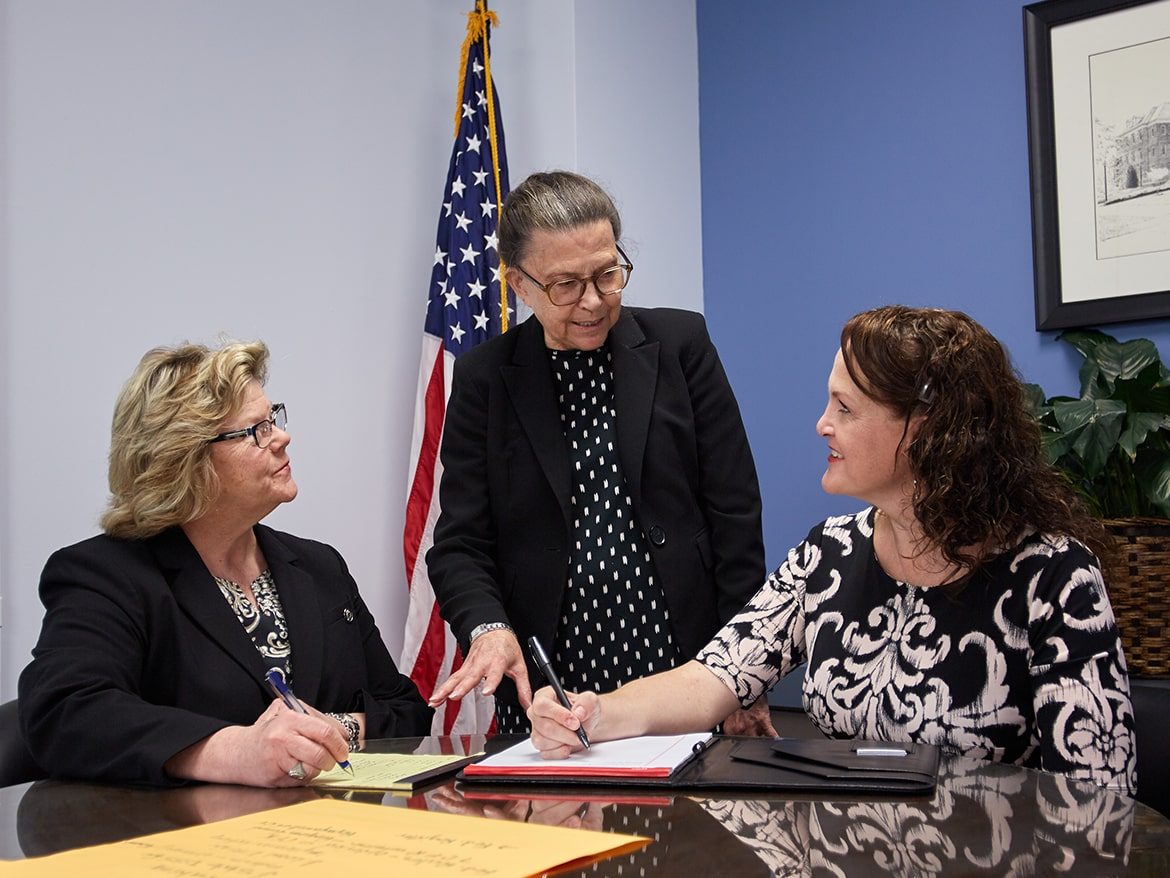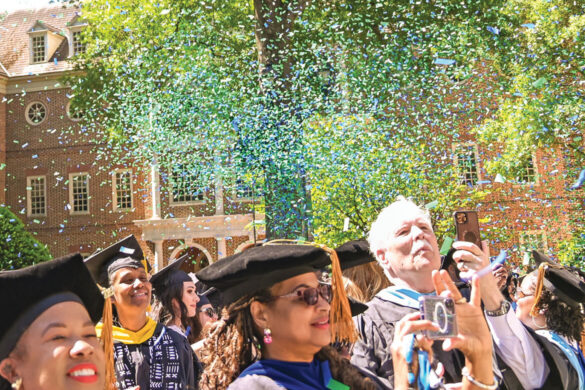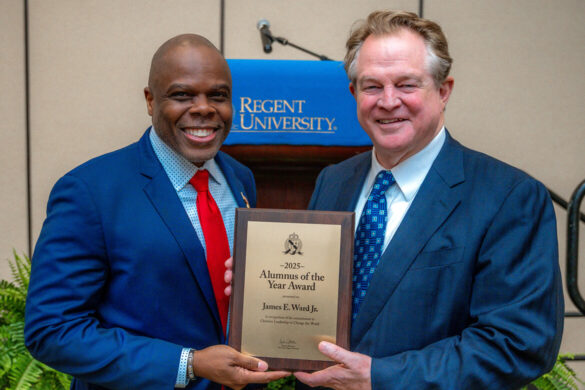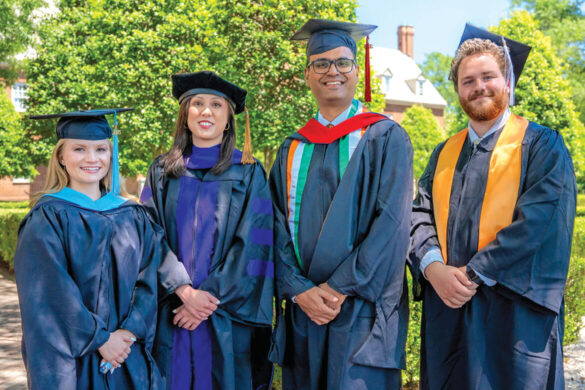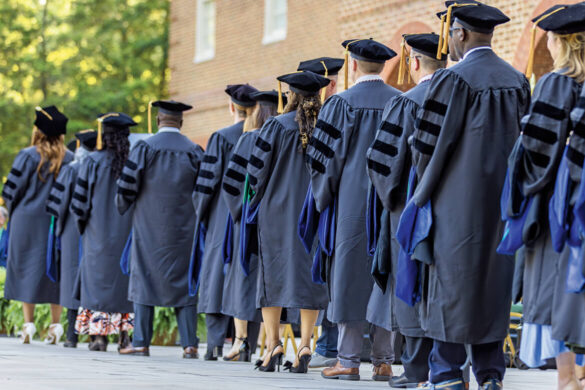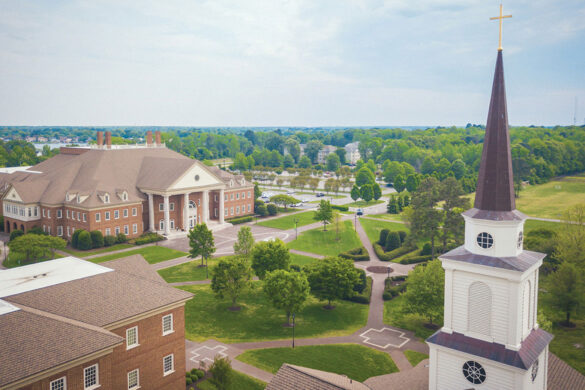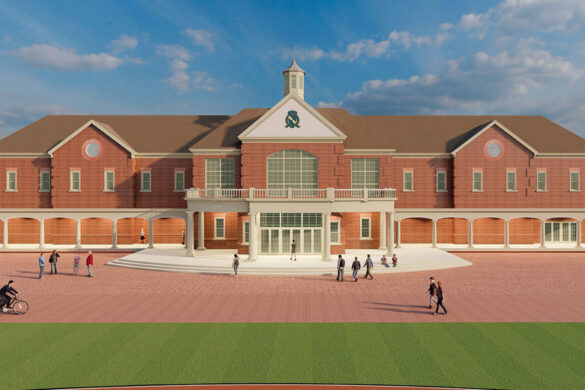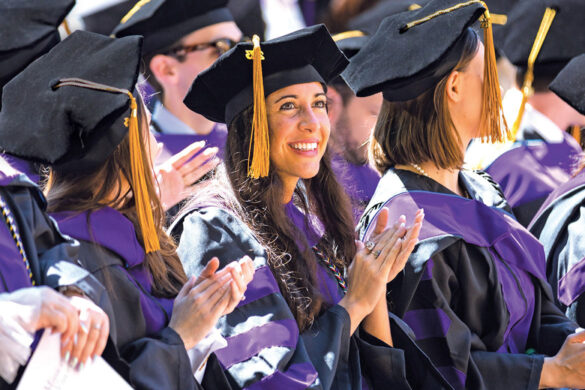Regent’s School of Law Opens Community Law Clinic
Branch in Downtown Norfolk to Help Underserved Families
“Pure and undefiled religion before God and the Father is this: to visit orphans and widows in their trouble” (James 1:27). With that in mind, Regent University School of Law recently launched the Grace Community Law Clinic in downtown Norfolk. The grand opening and ribbon-cutting ceremony on September 12 brought together Regent faculty, staff and students, along with local leaders, judges, attorneys and other VIPs from all over Coastal Virginia.
Strategically located across the street from the City of Norfolk Courthouse, the Grace Community Law Clinic is the new branch of the Regent University School of Law Clinic Program, which provides pro bono legal services to the Hampton Roads community with the help of Regent law students and local law professionals. This important initiative offers support to struggling and underserved families who have pending and ongoing cases before local juvenile and domestic courts. The assistance available through the clinic will focus primarily on family-related issues and is free of cost.
The dean of Regent’s School of Law and former chief justice of the Supreme Court of North Carolina, Mark Martin, says this important initiative will enable students to gain valuable experience and allow them to make a difference in the lives of others.

“The Grace Community Law Clinic will provide free legal services to individuals and families of modest means for domestic violence and family crisis issues,” he explains. “Regent Law is honored to support our local community in this way.”
By empowering Regent University law students to learn as they serve, those men and women will become advocates who defend those who can’t defend themselves. They will become equipped to serve as Christian leaders to change the world — one case at a time.
Kristy Spurgeon is a Regent Law student with a Virginia Third-Year Practice Certificate, which allows her to appear before local courts and administrative agencies. “I became involved with the law clinic because I wanted to fulfill my calling to help others who need a voice,” she explains. “I have a passion for helping those who need the greatest advocacy: our nation’s children, domestic violence survivors and military heroes.”
Spurgeon adds: “The clients I have assisted have all had their lives impacted for the better through these free services. The law clinic provides me the ability to complete God’s calling daily while pursuing my legal career.”
Master of Arts in Law student and soon-to-be graduate, Robin Ireland, plays a vital role in assisting the clinic and Regent students pursuing their Juris Doctor degree. “This program has given me practical experience in applying my knowledge of the law and the opportunity to network with business and legal professionals in the Hampton Roads area,” she says.

The Grace Community Law Clinic is made possible through the efforts of Regent’s School of Law and the generous support of Dr. John and Beverly Reese III. Before the grand opening, the longtime friends of the university were asked what has led them to so boldly and generously donate to this initiative.
“Just before Christmas a few years ago, I heard the Lord say, ‘Set the captive free,’” Mrs. Reese remembers. “Then I heard Him say Regent was to be the catalyst! So, I called the School of Law and asked what the university could do to set free those with legal issues who didn’t have the money or the knowledge of the law.”
She continued, “Throughout the years we have helped many impoverished people who just don’t know what to do. With a little assistance, they can support their families and have a fruitful life.”
“The Grace Community Law Clinic will provide free legal services to individuals and families of modest means for domestic violence and family crisis issues.”
Mark Martin, Dean, Regent Law
Supreme Court Chief Justice of North Carolina (2014-2019)
The School of Law has been providing pro bono legal services to the economically disadvantaged for 20 years. “The clinic was established to serve the low-income community on civil matters,” explains Regent Law Associate Professor Kathleen McKee. “To be eligible for the clinic’s services, the client’s income must be at or below the federal poverty line. Among the areas in which the clinic provides legal assistance are consumer matters, family law issues, landlord/tenant issues, government benefits, and limited services, such as powers of attorney.”
McKee points out that, for years, the community clinic operated out of limited on-campus space. Students often arranged to meet with clients at the offices of community partners, such as legal and domestic violence organizations. Among the clinic’s partners are Legal Aid Society of Eastern Virginia, Genieve Shelter, Children’s Hospital of the Kings Daughters, the city of Norfolk’s housing department, and others.

“The new office space in Norfolk will provide space to host meetings with community partners as well as meet with clients,” McKee says. “Because it’s directly across from the Norfolk courts, it also will afford the clinic an opportunity to arrange for students to observe court proceedings at the different court levels. The size of the space and its location provide better access to the clinic by our community partners and to the clients they refer to us.”
Regarding the generosity of the Reeses, McKee says, “It is impossible to quantify what their gift means. The offices provide a professional workspace for students. It has strengthened our connection with the Hampton Roads community. Moreover, it allows us to access experienced attorneys who are knowledgeable about both the practice of law and the management of a law firm.”
More than 40 years ago, God gave Regent’s founder, chancellor and CEO, Dr. M.G. “Pat” Robertson a vision to build the most influential, Christian, transformational university in the world. Providing legal expertise to families who need it but can’t afford the cost helps accomplish that goal. It not only enables the university to fulfill the biblical mandate found in James 1:27; it also empowers the School of Law to provide hands-on, real-world experience for students who are training to become future attorneys and Christian leaders to change the world.
